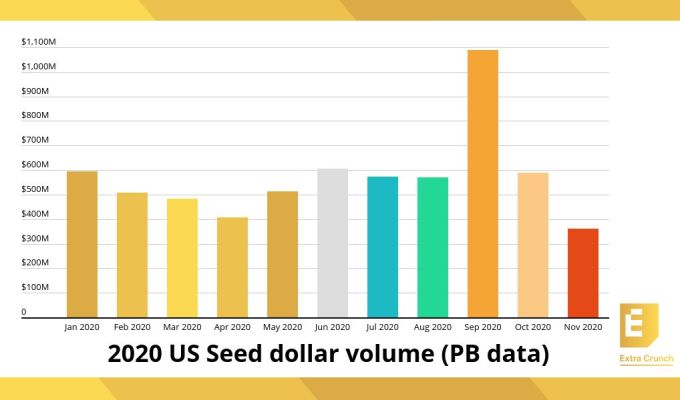- December 23, 2020
- by:
- in: Blog
SURPRISE! It’s December 23rd. How? Because time doesn’t make sense anymore and last week was really a month ago and April was yesterday.
Welcome to TechCrunch’s 2020 Holiday Gift Guide! Need help with gift ideas? We’re here to help! You can find our other guides right here.
SURPRISE! It’s December 23rd. How? Because time doesn’t make sense anymore and last week was really a month ago and April was yesterday.
Last minute shopping is always pretty dreadful, but this year particularly so. No one should be dropping their social distancing practices just to battle crowds for a twice-returned air fryer. Online retailers, meanwhile, have been warning of shipping delays since before December even started.
Fortunately, subscription boxes and services exist. They’re easy to order at the very last minute, easy to give from afar, and they’ll spread the gifting fun out over weeks and months.
Need some ideas? Here’s some inspiration:
For the puzzle/escape room fan: Hunt A Killer

Image Credits: Hunt A Killer
THERE’S BEEN A (fictional) MURDER!
You’ve been contacted by a detective who needs your help, and your job is to figure out whodunnit through the process of elimination. Each month brings another slice of the story via a box filled with puzzles, newspaper clippings, audio recordings, props, and other clues that lead you to the criminal.
I’ve done a few of these sets with family, and we’ve very much enjoyed them as a way to lose ourselves in a fictional world for a few hours. It’s paced in such a way that no single box is a commitment of more than an hour or two, so you can just drop back in whenever you’ve got the time. You can also expedite the next month’s box if you don’t want to wait, which is great.
Price: Varies, but the 6-month prepay option gets you one full game for around $165.
For the crafters and scrapbookers: Pipsticks

Image Credits: Pipsticks
Got a friend whose childhood love for stickers never faded? Pipsticks will send them a bundle of (really, really nice!) stickers each month. They’ve got a “Kids Club” plan meant specifically for the little ones, or a “Pro Club” pack for anyone looking to buff up their journaling/scrapbooking/crafting sticker collection.
Price: Starts at $12 per month
For the dog owners: Barkbox

Image Credits: Barkbox
Spoiling dogs is fun. Barkbox brings’em a constant rotation of treats and toys, all tailored around each month’s theme, like “Dogsgiving” in November or “Lick or Treat” back in October. Boxes are tailored to the size of the dog, and they’ve got a slightly pricier “Super Chewer” box with ultra-durable picks for dogs that chomp right through anything you put in front of them.
Price: Starts at $23 per month
For the highly caffeinated: Coffee subscriptions

Image Credits: Tetra Images (opens in a new window) / Getty Images
There’s a whole world of coffee to explore out there, but it’s way too easy to pick up whatever bag looks pretty and stick with that brand until the end of time. Got a friend thats been buying the same red plastic tub of grounds for ten years? Encourage them to branch out a bit!
There are so, so many options for coffee subscriptions, but a few that our team has tried and can vouch for are: YesPlz, Trade Coffee, Mistobox, Red Bay Coffee, and Angel’s Cup
Price: Varies
For the one who wants to read more: Book of the Month

Image Credits: Book of the Month
They vet the books, you read them. Each month you pick from one of five genre-spanning options and it’s dropped at your door. Running short on time and haven’t finished last month’s pick, or just not into this month’s selections? You can skip a month quite easily.
Price: Starts at $50 for 3 months of books
For the new human (and their parents): Lovevery Play Kits

Got a friend with a newborn and have no idea what to get them? Lovevery takes the subscription box concept and breaks it down month-by-month for the first stretch of a kid’s life. The newborn box, for example, focuses on high contrast items and things that’ll make tummy time a little more fun, whereas later boxes bring in toys that help with finer motor skills like stacking and grasping. They also offer boxes for toddlers, introducing concepts like rhyming, matching, and counting. The boxes are a bit pricey, but the company makes huge efforts to keep things sustainable and baby safe.
Price: Around $80 per box
For the TechCrunch reader: Extra Crunch

Shameless plug time! Extra Crunch is our membership program, where we’re able to go deep on topics like hiring, building a company, and picking the right investors. We regularly host Extra Crunch Live sessions where we chat with some of the biggest names in the industry and field questions from the audience, and our EC-1 series gives readers a rare view into the formation and strategies of some of the fastest growing companies around. We just launched a gifting option — check it out here!
Price: $75 per year
For the one with good handwriting: Maido in a Box

Image Credits: Kinokuniya
My handwriting is a joke, but I still absolutely love a good pen. One of my favorite stores to just wander around — back when that was a thing we could do — is Maido. Owned by the Japanese bookstore chain Kinokuniya, Maido offers up a carefully curated collection of pens and stationary in a way thats exhaustive but not overwhelming.
With the pandemic greatly limiting aimless retail store exploration, Maido has started producing monthly themed boxes where they bring their best goods to you. I’ve ordered a few of these so far, and each box has been just wonderful. If you’ve got a friend that has ever spent twenty minutes talking about their favorite pen, this one’s for them.
Price: $35
For the would-be green thumb: Succulent Studios

Image Credits: Succulent Studios
I love plants! Sadly, I also tend to kill plants pretty much immediately. I was very proud this year to grow a whole FOUR grape tomatoes before my tomato plant fell over and died. The hell am I supposed to do with four grape tomatoes?
As a result, our house and yard are filled with all of the succulents we can find — they’re super pretty and, thankfully, incredibly hard to kill. A lot of ours came from Succulent Studio, a service that does a wonderful job of finding new plants (with fun names like Lime Sparkler and Superbum) and delivering them safely to your door. If one does happen get beat up en route, they’ll teach you how to revive it… or, failing that, they’ll replace it.
Price: $16.50 for 2 plants a month
For the folks who like wine: MORE WINE

Image Credits: Getty Images
As with coffee, there are SO many different wines to try and so many different services that want to help you try them all. It’s tough to narrow it down, but there are plenty of services with proven track records. Winc has you take a quiz that aims to analyze your tastes and pair accordingly. Cellars Wine Club lets you pick a theme (Imports? Sweet? Sparkling? Reds only?) Vinebox sends wine by the glass in cute little test tube lookin’ vials so you don’t have to commit to a whole bottle. TechCrunch’s own Darrell Etherington likes Gargoyle Wine Club, with the caveat that it only ships to Canada.
Price: Varies, but generally around $60-80 per box.
For the traveller who can’t travel right now: Try the World

Image Credits: Try the World
One of my favorite parts about traveling is wandering into a local grocery store and trying all of the regional staples — all of the snacks, candies, and other goodies I’ve never seen at home. That sort of exploration isn’t super feasible in 2020, a year when many of us haven’t even left our own state.
As its name suggests, Try the World brings all of those goodies from around the globe straight to your doorstep. I’ve had boxes contain regional-favorite hot sauces, teas, spices, mustards, and more. The only catch? If you find something you love, finding where to buy more can be tough.
Price: starts at $40 a month
For the snazzy dresser: Gentleman’s Box

As written by our Editorial Director Henry Pickavet, who I can confirm is often dressed much more nicely than me:
I consider myself to be a fairly decent dresser. I tend to lean on ties, tie bars, pocket squares and the like to spruce up a button-down or a gray jacket.
But the choices! The sheer number of accessories, color schemes and levels of fancy can be overwhelming. Which is why I was pretty excited when I came across Gentlemen’s Box.
Each month, I receive a small box that includes five to six items: a tie and a pair of socks, as well as a combination of a random mix of a number of other things that alternate from month to month, such as a tie bar, cuff links, a lapel pin and a pocket square. I’ve also received a few watches, a few pairs of sunglasses, a wallet, a tray for odds and ends, and money clip. Fancy, right?
Each box also comes with an editorially curated booklet that includes details about how the selections of the month fit together, as well as pictures from customers showing their wares in the wild. I look forward to the end of the pandemic for a number of reasons, and on that list is to be able to go out again and get my dapper on.
Price: Depending on what you’re looking for, ranges from $35 to $100+ per box
For the gamer: an all-you-can-play service on their platform of choice

Image Credits: Microsoft
Why give’m just one game when you can give them access to tons of games? A lot of the big names in gaming all have Netflix-style on-demand games services now, and they’re actually pretty dang solid. Sony has PS Now (check out Horizon Zero Dawn, Hollow Knight, and the God of War series if you haven’t already), and Microsoft has Xbox Game Pass (Gears 5! MotoGP 20! Celeste!). Even Apple is getting in on the fun with Apple Arcade — if you dive in there, be sure to check out Beyond a Steel Sky, one of our favorite things of 2020.
Price: PS Now and Xbox Game Pass are both $10 per month (but cheaper if you prepay), while Apple Arcade is $5 per month




















